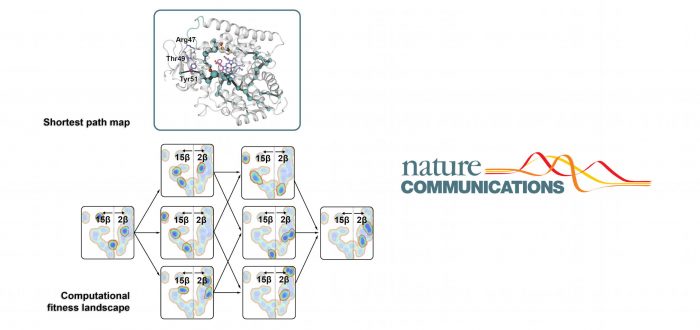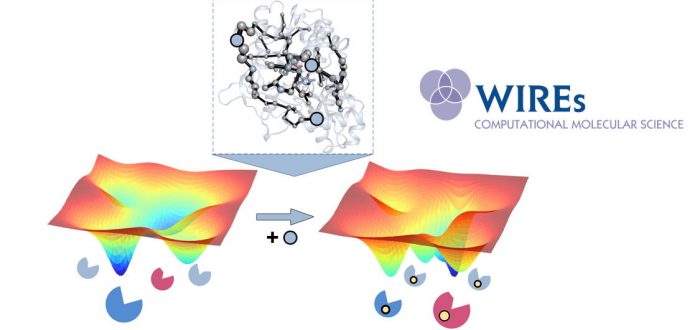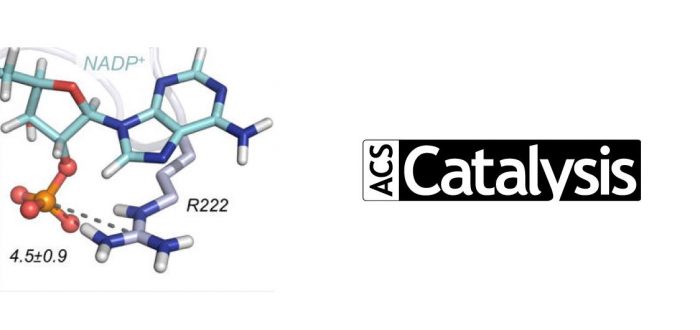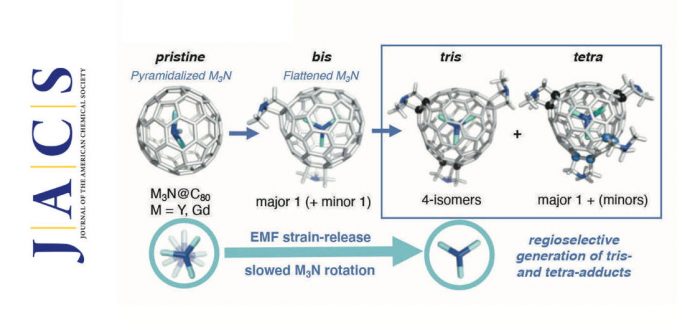The systematic construction of the so-called protein fitness landscapes and the quantification of non-additive effects observed by mutations (known as epistasis) are rarely reported. However, they provide fundamental insights into the mechanisms of laboratory and natural evolution. When reported, unfortunately, these studies usually consider only a single enzyme trait of a limited number of protein
- sec.iqcc@udg.edu
- +34 972 41 83 57
Category: Silvia Osuna news
Dr. Ram Mahato has recently become a new member of the Institute of Computational Chemistry and Catalysis (IQCC). Dr. Mahato did his PhD at National Yang-Ming University, Taiwan on predicting functional details of E5 Protein from Human Papillomavirus using computational modeling approaches under the supervision of Prof. Dr. Wolfgang B. Fischer in 2017. He has
This coming Thursday (11th of February) is the International day of Women and Girls in Science. The IQCC has currently a rather favourable balance in gender ratio of staff members, both at the Master level (53%), PhD level (33%), postdocs (18%) and permanent researchers staff (28%). Notably, out of the 4 most recent permanent members, 2 are
Next Friday (12th of February, 11.00h, virtual) will be the defense of the doctoral thesis of Miguel Ángel María Solano, titled “Computational studies of the conformational landscape of allosteric and enantioselective enzymes”, and supervised by Sílvia Osuna and Marcel Swart from IQCC. If you want to follow the online defense, please send an email to the UdG
At this moment is taking place at the Palau de la Generalitat in Barcelona the award ceremony for the 2019 Catalonian National Research Awards. Among the awardees is Sílvia Osuna in the category for Young Talent. Below we reproduce (with permission) the translation of an interview that Xavi Aguilar held with Sílvia, and which was published last week
The interconversion of non-activated alkenes and alcohols, catalysed by (de)hydratases, has great potential in biotechnology for the generation of fine and bulk chemicals. LinD is a cofactor-independent enzyme that catalyses the reversible (de)hydration of the tertiary alcohol (S)-linalool to the triene b-myrcene, and also its isomerization to the primary alcohol geraniol. In this collaboration project
Many computational enzyme design approaches have been developed in recent years that focus on a reduced set of key enzymatic features. Initial protocols mostly focused on the chemical steps(s) through transition state stabilization, whereas most recent approaches exploit the enzyme conformational dynamics often crucial for substrate binding, product release and allosteric regulation. The detailed evaluation
Enzyme powered micro/nanomotors have great potential applications in various areas, especially in the biomedical and environmental fields. To efficiently reach those applications, it is necessary to understand the fundamental aspects affecting the motion dynamics. In this collaboration project between IBEC (Prof. Sanchez), UCM (Dr. Filice), and IQCC (M. Estévez, Dr. Iglesias-Fernández, Prof. Osuna), we explored
The development and application of a novel in vivo selection method enabled the testing of more than >106 variants of formate dehydrogenase (FDH) to switch its cofactor specificity in one single round of protein directed evolution, using multiple mutational sites selected based on previous studies and initial computational modeling. Due to this new approach, key
In this collaboration project between ETH Zurich, Purdue University Fort Wayne, and the IQCC (Dr. Adrià Romero-Rivera, Dr. Marc Garcia-Borràs, and Prof. Sílvia Osuna) the tris- and tetra-adducts of M3N@Ih–C80 metallofullerenes were synthesized and characterized for the first time. The 1,3-dipolar cycloaddition (Prato reaction) of Y3N@Ih-C80 and Gd3N@Ih-C80 with an excess of N-ethylglycine and formaldehyde










